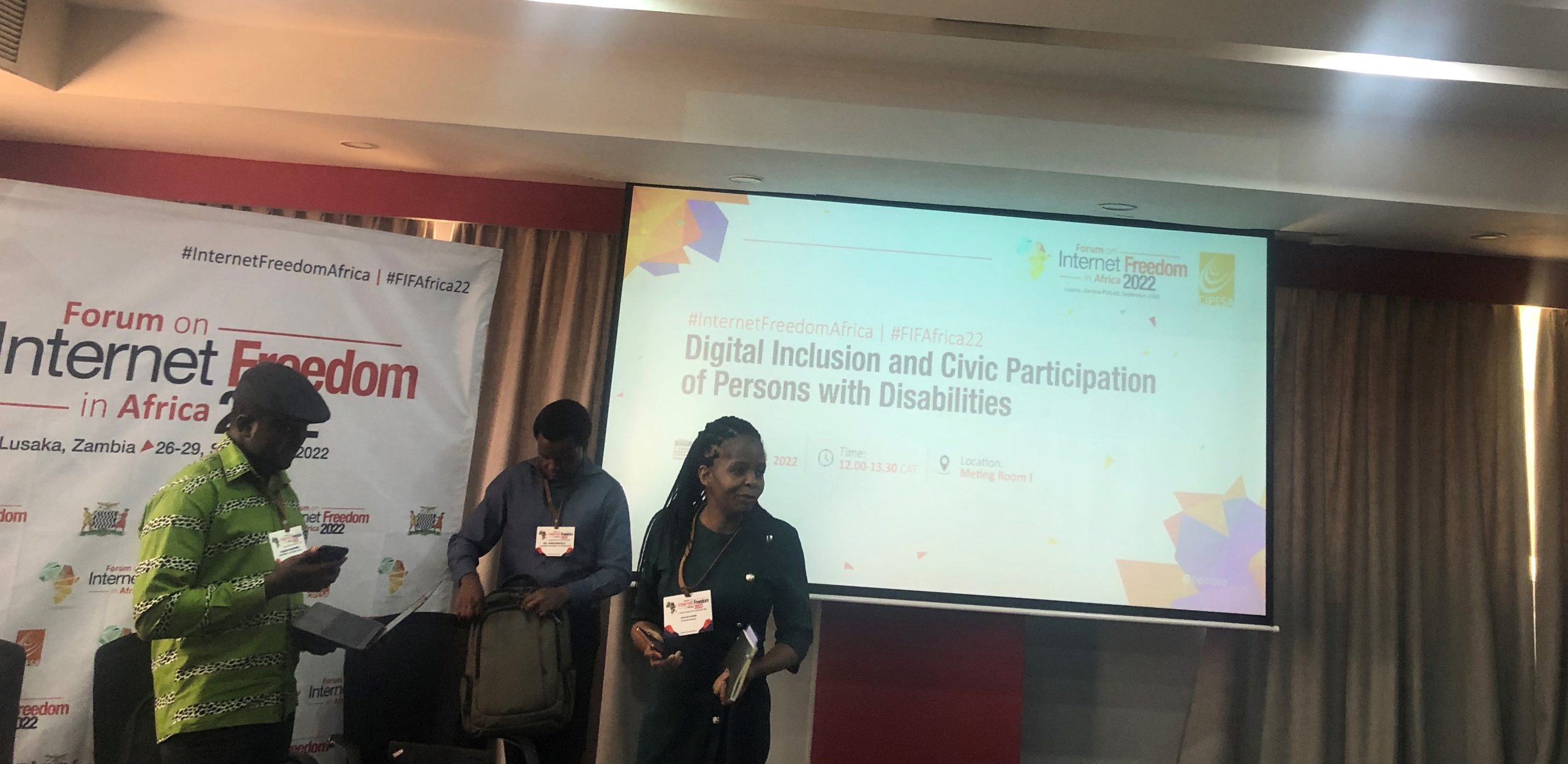Participation of Persons with Disabilities in Politics and Public Life
On Day 2 of the Forum on Internet Freedom in Africa, there was a session focused on digital inclusion and Civic Participation of PwDs. Article 29 of the Convention on the Rights of Persons with Disabilities requires states parties to guarantee the participation of PwDs in democratic activities such as voting and being voted for. Panelists lauded the existence of the human rights instruments however, they call on civil society and governments to ensure the realization of this right.
Barriers to Civil Participation
The Panelists pointed out various barriers that PwDs face while striving to participate in democratic activities.
- PwDs hardly advocate for their rights as they expect their needs to be met as charity work and not human right compliance.
- PwDs are economically disempowered to fully participate in democratic activities such as campaigning for elective seats. For instance, most working age PwDs are unemployed.
- Social attitudes towards PwDs is misinformed by stereotypes that enforce stigma among PwDs.
- PwDs lack knowledge on the technologies and assistive technologies that they can use to reap the benefits of the internet.
How can we use ICTs to overcome some of these barriers
First, ICTs offer immense opportunities to PwDs to communicate access information on an equal basis with everyone, and therefore participate in civic activities. Secondly, panelists noted that the COVID-19 Pandemic was a blessing in disguise for PwDs as it normalised working virtually from home. Something PwDs had been advocating for before the pandemic. Third, technology also assists PwDs to engage with their elected leaders. Finally, Assistive devices like hearing aids can be used to facilitate communication. Finally, through social media, PwDs can tell their own stories and lived experiences.
Even then, panelists noted that assistive technologies are unaffordable to PwDs and a member from the audience recommended lobbying for tax exemptions on these technologies. Another challenge with ICTs for PwDs is the skills gaps in technology companies on expertise to make more inclusive devices. Finally it was pointed out that PwDs still lack basic knowledge on the existence of these technologies.
Action Areas: How do we move forward?
- Subsidise access to ICTs for PwDs by reducing the costs of internet access, assistive technologies.
- Building capacity of technology companies to build accessible devices
- Engaging academia to conduct research on ICTs
- Continuous engagement between technology companies and PwDs to ensure that their products are more inclusive.
- Every stakeholder to play their role in advocating for the digital rights of PwDs.
- Civil society organisations to consider persons with disabilities users when developing websites etc.
Angela Minayo is KICTANet’s Women’s Digital Rights Programs Officer. Her interests are on mainstreaming gender and inclusion of structurally marginalised groups online and in internet governance processes.
![]()




